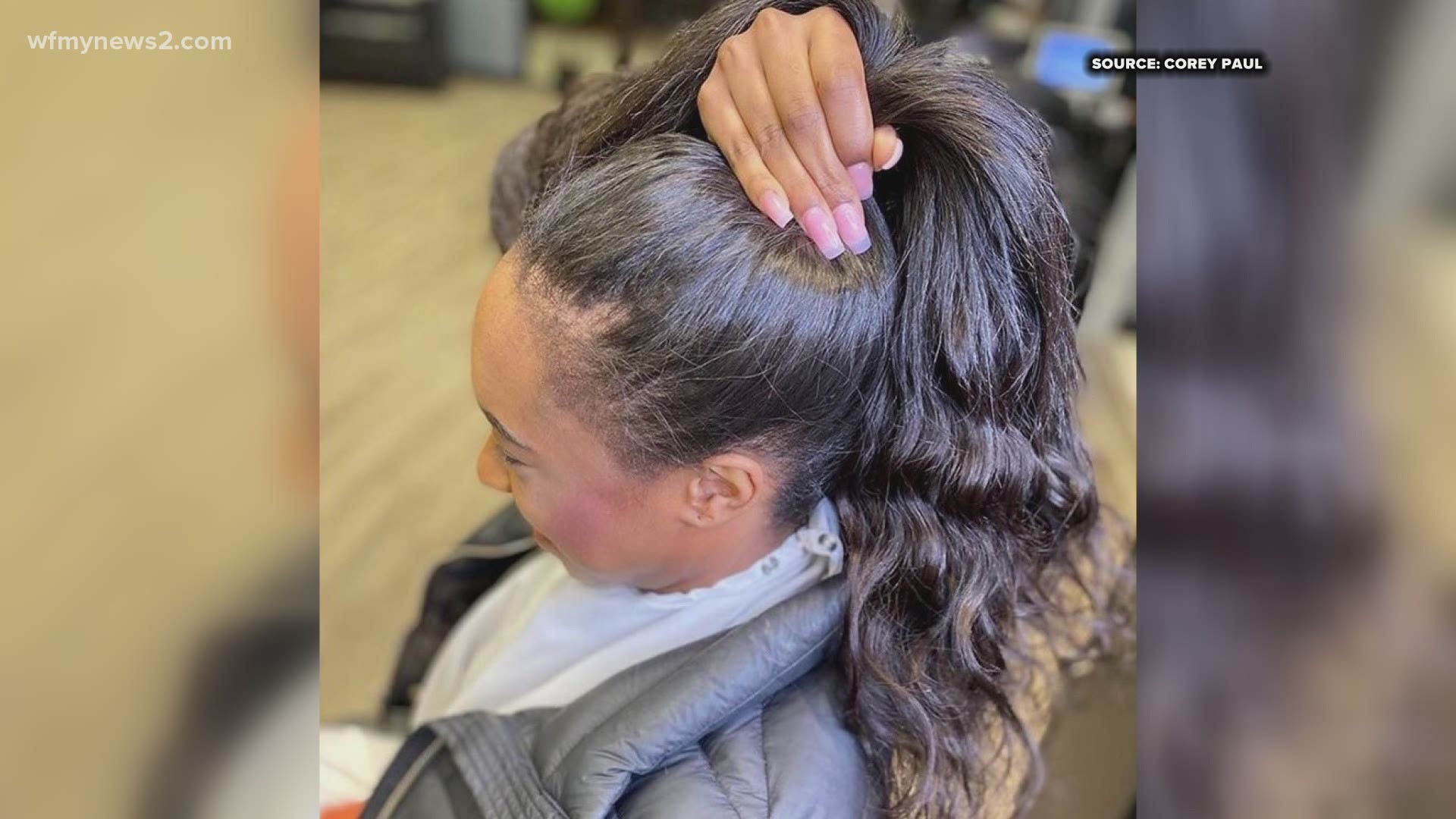GREENSBORO, N.C. — The coronavirus pandemic continues to be a battle for small business owners. The latest 2020 report from the U.S. Small Business Administration shows there are about 30-million small businesses in the country.
But, 9-million small businesses are at risk of closing for good in 2021 due to the pandemic. That's coming from a recent Federal Reserve Bank survey. It shows the outlook is even worse for minority-owned businesses, with 8 in 10 saying their company is in poor financial condition.
Black business owners, in particular, are struggling to stay afloat during the health crisis. U.S. Bureau of Labor statistics show there were just over one-million Black businesses at the start of 2020. But, since the pandemic hit the U.S., small Black-owned businesses have decreased by at least 41-percent.
Now that you know the latest statistics, you might want to consider supporting a Black-owned business in the Triad. Corey Paul is the founder and owner of Corey-Paul's Hair Studio on Hanes Mall Boulevard in Winston-Salem. He established the hair salon in 2009, with the goal to be the triad's leading salon in setting trends and offering great service to clients.
Nine licensed hair stylists work at the shop, specializing in cuts, coloring, blowouts, natural hair care, braiding, extensions, and chemicals -- such as relaxers and perms. Despite the pandemic, the salon is still catering to men and women of all hair-types under tight safety and health measures. That includes the use of face masks, temperature checks, and social distancing.
Since February is Black History Month, Paul is also sharing how hair for African Americans is a symbol of history and culture, from afros to locs, twists, curls, and more. For centuries, he says, Black people have been creating and wearing certain hairstyles to deliver powerful messages in social and political settings.
“We've always been about hair care, from Madam C.J. Walker making her product line and famous pressing cream," Paul said. “We've always been about our hair, whether you had an afro, braids, or hair pressed straight. Hair has just been that staple in our community.”
The popular afro hairstyle emerged in the 1960s during the Civil Rights Movement. In the Black community, historians say, the hairstyle continues to act as "a symbol of rebellion, pride and empowerment." The natural hair movement is all about accepting natural Black beauty and encouraging Black and Brown communities to avoid hair damaging products.
The fight, however, to end hair discrimination continues across America. According to the Dove CROWN Research Study, Black women are 1.5 times more likely to be sent home from the workplace because of their hair. Dove and the CROWN Coalition created The CROWN Act in 2019 to ensure protection against discrimination based on race-based hairstyles by extending statutory protection to hair texture and protective styles, such as braids, locs, twists, and knots in the workplace and public schools.
“That's the good thing about the Black culture,” Paul said. “We can change it up. We can go from natural to relaxed or hair extensions. Our hair is so versatile. But, I encourage Black women and men to just be comfortable in whatever hairstyle they’re wearing.”
To learn more about hair services or how to support Corey Paul’s Hair Studio, visit the salon website. For more information about The CROWN Act and the fight against hair discrimination in America, visit the official campaign website.

